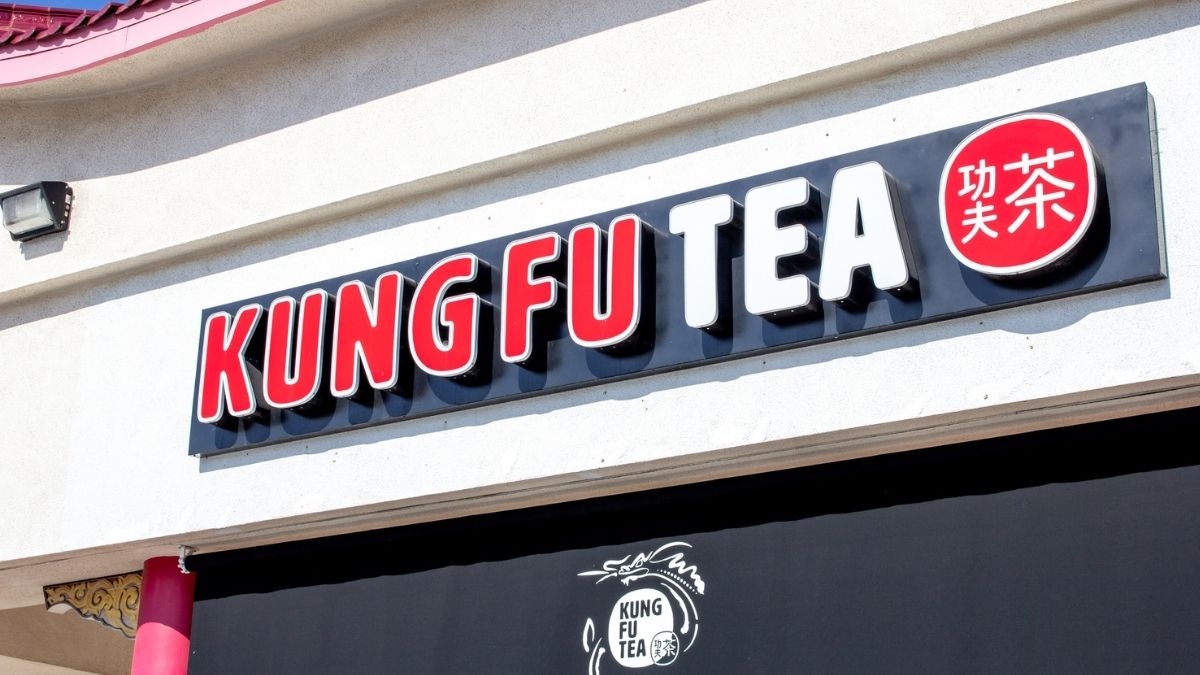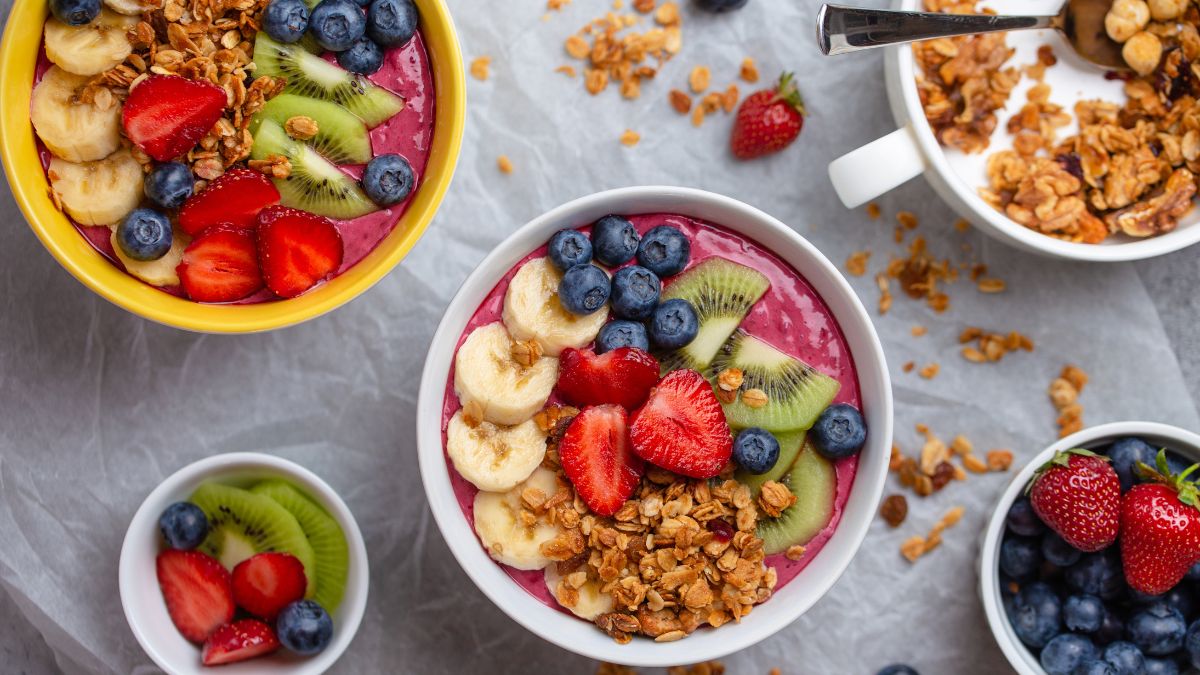Did you know April 30th is called National Bubble Tea Day? Yes, as crazy as it sounds, it’s been named that. Not just by people but by one of the most popular bubble tea brands called Kung Fu Tea.
You might be in the vicinity of the 250 and more Kung Fu Tea outlets, obsessing over their delicious beverages.
Let’s be honest; pretty things attract more customers. This company works towards giving you tea that’s not only delicious but also visually tantalizing! It’s not that easy, but they do it impeccably.
Kung Fu Tea provides you with numerous drinks suitable for all tastes and preferences. Now, if you’re a vegan, you’re bound to wonder whether their offerings are vegan-friendly too. You don’t have to worry anymore because they have a variety of beverages that are excellent choices for vegans.
Therefore, here’s something especially coming for all the vegans out there. In this blog, you’ll find out what are the vegan options at Kung Fu Tea!
Classic Series Flavors
All the flavors in the Classic Series are suitable for vegans. That is, of course, if you don’t add honey in them.
- Kung Fu Green Tea (calories: 0; price: $ 3.95)
- Kung Fu Black Tea (calories: 0; price: $ 3.95)
- Kung Fu Oolong Tea (calories: 0; price: $ 3.95)
- Winter Melon Tea (calories: 38 – 52; price: $ 3.95)
- Winter Melon Green Tea (calories: 38 – 52; price: $ 4.95)
- Longan Jujube Tea (calories: 82 – 122; price: $ 4.95)
Punch Series Flavors
All the flavors in the Punch Series are suitable for vegans. That is, of course, if you don’t add honey in them.
- Lychee Black Tea (calories: 62 – 83; price: $4.85)
- Lychee Punch (calories: 62 – 83; price: $4.85)
- Mango Green tea (calories: 75 – 105; price: $4.85)
- Orange Green Tea (calories: 66 – 94; price: $4.85)
- Peach Oolong Tea (calories: 60; price: $4.85)
- Sunshine Pineapple Tea (calories: 191 – 244; price: $4.85)
- Grapefruit Green Tea (calories: 52 – 65; price: $4.85)
- Passion Fruit Green Tea (calories: 84 – 105; price: $4.85)
- Strawberry Lemonade (calories: 129 – 194; price: $4.85)
- Strawberry Lemonade Green Tea (calories: 126 – 189; price: $4.85)
- Rosehip Lemonade (calories: 93 – 181; price: $4.85)
Slush Series Flavors
- Red Bean Slush (calories: 468 – 640; price: $6.05)
- Passion Fruit Slush
- Mango Slush (calories: 187 – 262; price: $6.05)
- Caribbean Breeze Slush (calories: 327 – 420; price: $6.05)
- Pineapple Slush (calories: 320 – 426; price: $6.05)
Vegan Toppings
- Nata Jelly (calories: 79)
- Mango Jelly (calories: 79)
- Red Bean (calories: 125)
- Crystal Bubbles (calories: 54)
- Oreo (calories: 93)
- Popping Bubble (Coffee) (calories: 104 – 115)
- Popping Bubble (Mango) (calories: 104 – 115)
- Popping Bubble (Grape) (calories: 104 – 115)
Benefits of the Three Main Classic Flavours
The three main teas are Kung Fu Green Tea, Kung Fu Oolong Tea, and Kung Fu Black Tea. Here are some essential points you need to know about them.
Green Tea
Green tea has a group of chemicals named catechin polyphenols. Catechin polyphenols have epicatechin gallate, catechin, epicatechin, epigallocatechin gallate, and other multiple proanthocyanidins. In green tea, you will also find vitamins like B1, A, B2, B3, C, and E.
Catechin Polyphenols
With the growing interest in the advantages of tea, there has been a spike in interest in its benefits. The epidemiologic evidence on the impacts of tea consumption on cardiovascular disease probabilities and cancer is conflicting.
Furthermore, tea has different bioactive chemicals and is specifically rich in catechins, with high amounts of epigallocatechin gallate.
Catechins, with their derivatives, contribute to the advantageous impacts credited to tea. Tea polyphenols and catechins effectively scavenge reactive species of oxygen in vitro. Additionally, they might also indirectly function as antioxidants with their effects on enzyme activities and transcription factors.
Additionally, the consumption of tea demonstrates a modest transient rise in the capacity of plasma antioxidants. The impacts of green tea and tea catechins on stress biomarkers, mainly oxidative damage of DNA, appear promising in animals.
Oolong Tea
There are many health advantages of oolong tea, including reducing chronic health conditions. These conditions include inflammatory disorders, heart diseases, and irregularly high cholesterol levels. Oolong tea also gives you essential antioxidants and promotes strong bone structure, dental health, and robust skin.
Black Tea
Black tea has high amounts of antioxidants called polyphenols, containing small quantities of proteins, sodium, and carbohydrates. It has health advantages, including decreasing the probability of stroke and avoiding other unusual cardiovascular conditions.
Are Kung Fu Tea Jellies Vegan?
All the toppings listed above are suitable for vegans, namely mango jelly, herbal jelly, and nata jelly. Here is a list of ingredients present in each jelly.
Mango Jelly
- Coconut pulp
- Sugar
- Water
- Mango flavoring
- Potassium sorbate
- Xanthan gum
- FD&C Yellow
- Malic Acid
Nata Jelly
- Coconut pulp
- Sugar
- Water
- Pineapple flavoring
- Xanthan gum
- Potassium sorbate
- FD&C Yellow
Herbal Jelly
- Herb Juice (water sugar and Chinese mesona)
- Brown sugar syrup
Brown Sugar Syrup
- Sugar
- Water
- Fructose
- Caramel flavor
- Caramel color
- Acesulfame potassium
- Potassium sorbate
- Silicone anti-foam tapioca starch water
Ingredients
Now, these additions that you put in your drink have some ingredients that might be questionable for strict vegans. Please have a look at them before you decide to put them in your vegan beverages.
Casein
When you check the ingredient list, you must look at a milk-based protein called “casein” found specifically in milk. Casein is the ingredient that provides melted cheese with the stretchiness you might love.
Casein appears in processed foods, paints, adhesives, and protein powders other than dairy products.
According to the company, while their milk powder is entirely dairy-free, it still has casein. Kung Fu Tea encourages you to look at the ingredient list to make sure there’s safe consumption.
Furthermore, soy cheese manufacturers usually added casein to products during the olden days without mentioning it as a milk ingredient. It worked as a trick to make vegans eat it.
Additionally, even today, there are some almost soy-based cheeses available in the market containing casein. These aren’t might want to see the ingredients list before you buy cheese.
Sugar
Contracting the popular beliefs, not every type of sugar is vegan. Table or refined sugar, utilized in baking, has brown, powdered, and white sugar. The more used option, sugar originating from sugarcane, might not be vegan sometimes.
To manufacture refined sugar from sugarcane, companies crush stalks to separate the pulp and juice. Furthermore, this juice is then processed before the company filters and bleaches it with bone char.
Bone char gives sugar a snowy white color. This bone char comes from heating cattle bones at extremely high temperatures until it turns to black powder. However, this isn’t the case for every company. Some companies also use granularly activated charcoal.
Manufacturing companies only use this processing method for sugarcane; beet sugar doesn’t depend on crystallization. Sugar doesn’t have bone char directly added to it; however, due to its production process, vegans don’t indulge in it.
Artificial Flavor
You can’t access a list of types of artificial or natural ingredients manufacturers use. Therefore, reading “artificial or natural flavor” on labels might get irritating without actually knowing the ingredients.
Most artificial flavors are suitable for vegans. According to FDA, ar
artificial flavoring refers to a substance that has the purpose of impacting flavors and isn’t derived from the following.
- Fruit or fruit juice
- Vegetable or vegetable juice
- Edible yeast
- Bud, root, herb, bark, leaf, or similar plant materials
- Fish, poultry, dairy products, meat, eggs, or fermentation products.
It sounds great but remember that synthetically made substances usually get tested on animals in the beginning. Furthermore, it’s not uncommon to use animals for the verification of artificial colors. After they’re deemed safe, these flavors get tested.
However, some flavors like diacetyl (butter) get tested more than once for safety reasons. That is the tricky part. Most artificial flavors don’t get tested much, if they do in the first place, on animals.
Artificial Colors
Artificial colors are vegan (technically). Many synthetic colors derive from plants, except carmine. Carmine comes from an insect named cochineal that is from Latin America. These insects live on cacti, and millions of them get harvested each year to get red food coloring.
Many other artificial colorings are vegan if you don’t mind animal testing. Animal testing continues with species who experience a fate as bad, if not worse, than death.
Some individuals understand that it’s a necessary evil to ensure human safety. However, others condemn it. Companies use rats for experiments, while sometimes dogs are victims of such exploitive treatments.
Conclusion
You can now confidently walk into the nearest outlet and order a vegan drink for yourself without researching. Now that you know the vegan options at Kung Fu Tea, another crucial question needs to be addressed.
Kung Fu Tea uses non-dairy creamers as milk alternatives in their drinks, but these contain a small amount of sodium caseinate, a dairy-derived ingredient. This means their milk substitutes may not be suitable for vegans or those with milk allergies. Currently, Kung Fu Tea doesn’t offer plant-based milk options like almond, oat, or soy milk, which some other brands provide. If you’re watching your intake, especially curious about Kung Fu milk tea calories, keep in mind that the choice of creamer can affect the nutritional content. As of 2025, this remains an important consideration for anyone managing dietary preferences or restrictions when enjoying their favorite beverages.




